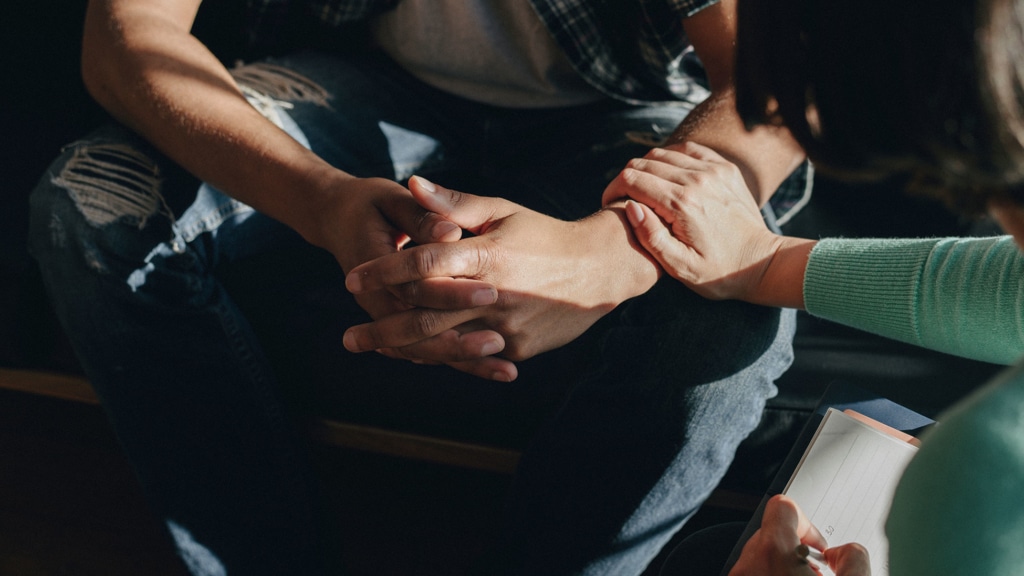Are you looking for long-term drug rehab in New Jersey? At NJ addiction resources, we provide a variety of drug rehabilitation options, and this includes long-term residential and outpatient treatment.
Table of Contents
- 1 What is the difference between short-term and long-term drug addiction treatment?
- 2 What is considered long-term treatment?
- 3 How long is long-term treatment?
- 4 Is there a treatment that is considered most effective for substance abuse?
- 5 What types of drug rehab services are offered at a long-term recovery center?
- 6 What is the average time spent in rehab?
- 7 What are the benefits of long-term treatment?
- 8 What is the best way to reduce the risk of relapse?
- 9 What is the most common treatment process?
- 10 What if I’m just thinking about going into long-term drug rehab in New Jersey?
- 11 Getting Help at NJ Addiction Resources
What is the difference between short-term and long-term drug addiction treatment?
The primary difference between the two types of treatment is the length of the program. Short-term drug rehab typically lasts a month or 28 days. Individuals who go to short-term treatment typically have never been to treatment before. They aren’t at a clinically high risk of relapse, and they probably haven’t been addicted very long.
Long-term treatment lasts at least 90 days. Though, there are programs that can last 120 days or longer. These programs are more intense than the short-term programs and typically offer more services.
What is considered long-term treatment?
Long-term treatment, whether it’s outpatient or residential, is a high-intensity program that’s designed to help you get sober and stay sober in the future. These programs often offer an individualized approach and are more detailed than short-term programs. Individuals who may want to consider long-term treatment are those who have had substance use problems for an extended period of time. They’ve relapsed after attending a short-term treatment program, or they have substance use and mental health issues.
How long is long-term treatment?
Long-term drug rehab is any program that is 90 days or more in length. Your exact long-treatment program will be determined by your recovery. If you choose a long-term residential treatment program, you’ll remain on-site and live at the facility 24 hours a day while you receive treatment. If you choose a long-term outpatient program, which may either be intensive outpatient or partial hospitalization, you’ll receive care multiple days a week for several hours and go home at night to eat dinner and sleep.
Is there a treatment that is considered most effective for substance abuse?
The most effective treatments for drug and alcohol abuse are those that utilize a custom treatment program, instead of a step-based program. Custom drug rehab programs take into account the length of your use, its severity, your personality, if you have any mental health issues, and if you’ve previously completed treatment but relapsed. The goal of an individualized approach is to offer the most effective care for you and to periodically adjust care as you recover.
What types of drug rehab services are offered at a long-term recovery center?
The types of programs offered can differ between facilities. Here at NJ Addiction Resources, we offer drug detox, dual diagnosis, transitional living, recovery coaches, cognitive behavioral therapy (CBT), group therapy, individual counseling, and 12-step meetings if you feel you need a step-based approach.
What is the average time spent in rehab?
The average length of time that people spend in a drug rehab center is 28 days. However, better outcomes are typically noticed if the individual spends more time in rehab. The truth is that you shouldn’t exit your program until you are ready. This means that you might start with a short-term program but determine you need more care, so enter a long-term program. Once you complete the long-term program, you may decide that you need to enter into transitional living or a sober living home. Sober living homes allow you to go to school or work while relearning how to join society in a healthy, sober way. These homes also give you the opportunity to experience life’s stressors and work on your newly developed coping skills while living in a supportive environment and still receiving treatment.
What are the benefits of long-term treatment?
Long-term drug rehab offers many benefits over short-term rehab. These include:
- Gives more time for the initial recovery process, which can lead to lower instances of relapse
- Gives more time for the family recovery process if family therapy is utilized
- More life skills are learned during the treatment program
- Coping skills are better learned and applied during long-term drug rehab
- A higher level of recovery support is offered when long-term drug rehab is chosen for substance use disorder rehab
What is the best way to reduce the risk of relapse?
According to NIH, substance use disorders have a relapse rate of between 40 and 60 percent. This is not unlike most chronic health conditions. The trick to preventing a relapse is to understand the signs of a relapse and to monitor and manage your substance use disorder. In other words, your treatment and recovery will be ongoing even after you finish your initial treatment program. The good news is that you will learn the stages of drug relapse and how to identify them while you are in treatment. The stages are emotional, mental, and physical.
What is the most common treatment process?
Drug rehab treatment in New Jersey occurs in stages. The first stage is detox. This is where you abstain from drinking and taking illicit substances and pills. Once you stop consuming your drug or drink of choice, the chemicals will leave your body naturally. In order to prevent severe withdrawal symptoms, medication may be provided. During your detox, you will be provided with many different types of therapy in order to help you along your path to sobriety. The therapies provided may include individual, group, CBT, and family therapy. The early stages of the recovery process are used to instill hope and to show you that there are others that have substance use disorder, just like you. As treatment progresses, you’ll have the opportunity to practice the new social skills you are learning. You’ll also be able to practice new behaviors and coping skills for daily life stressors. You’ll also learn about addiction, how addiction works on the body and how to spot signs of a relapse or setbacks in your recovery so that you can take action and get back on track.
What if I’m just thinking about going into long-term drug rehab in New Jersey?
If you’re thinking about going into ling term drug rehab, you’ve identified that you have a problem. This is a good place to be because you’ve recognized that you need help and your drinking, pill or drug addiction is negatively affecting your life. In fact, there’s a different type of recovery process when it comes to realizing that you need help, and this is called the contemplation stage.
The first stage is pre-contemplation. In the pre-contemplation stage, you’re probably still justifying your use. You may even be verbally justifying it to your friends, coworkers and family members who’ve tried to address the situation with you. In fact, if you’re in the pre-contemplation stage, take a moment to think. Has anyone tried to address your substance use with you recently? What justifications did you give? Have to tried to quit on your own and failed? The truth is that you can seek help and recover even if you aren’t sure that you need recovery.
The third stage involves action. You’ve realized that it’s time to get help. You may even be looking up signs of addiction and what types of treatment are available. You may have tried to slow the consumption of your drug or drink of choice on your own or tried to quit cold turkey, but the truth is that better outcomes are achieved when professional help is utilized.
Getting Help at NJ Addiction Resources
If you’re ready to take action and get help for your substance use disorder, give us a call today. Our caring, professional staff is here to help you get on the road to recovery so that you can start living a sober lifestyle.



